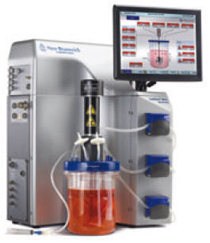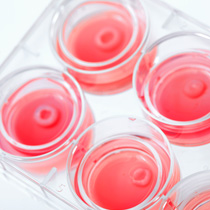Cell culture in change - an overview
|
Over the last years, cell culture is increasingly often used for industrial purpose especially in the area of drug development and testing und GLP and GMP. This leads to the positive effect, that for the first time, new methods are developed in quick succession and old difficulties are challenged. Cell cultures are now used to produce peptides and protein drugs in bioreactors such as:
in bioreactors. Besides the use in research labs,
have become important methods in industrial production and quality controls labs. In the area of bioassays, cell cultures are now inexpendible for cell-based release assays such as potency, content and toxicity of active pharmaceutical ingredients (API) and finished drug products. |
 |
|
Primary cells are used as a replacement for animal models and tests. Somatic cells and adults stem cells now become drugs themselves as
Even though some advancements are expensive, many other of these new developments are scalable, suitable and affordable for academic and small business use as well. Use our pages to get up dates on new products such as modern incubators, cell culture plastic ware, mycoplasma test kits, cell counters and others. Our training courses convey comprehensive overviews over cell culture, standardization or bioassay reproducibility. |
 |
Never change a running system?
Surely, this does not mean that everything that used to be correct now becomes false. However, in many respects changes of old protocols or the implementation of newly developed reagents may increase quality or reliability of results. New equipment may be unfamiliar but it may standardize procedures, simplify methods or generate completely new information. So, before saying “it also works this way” take a look and think about whether a new technology has the potential to be useful for you. Even if you would have to revise a SOP the change might pay off soon.
Course program cell culture


